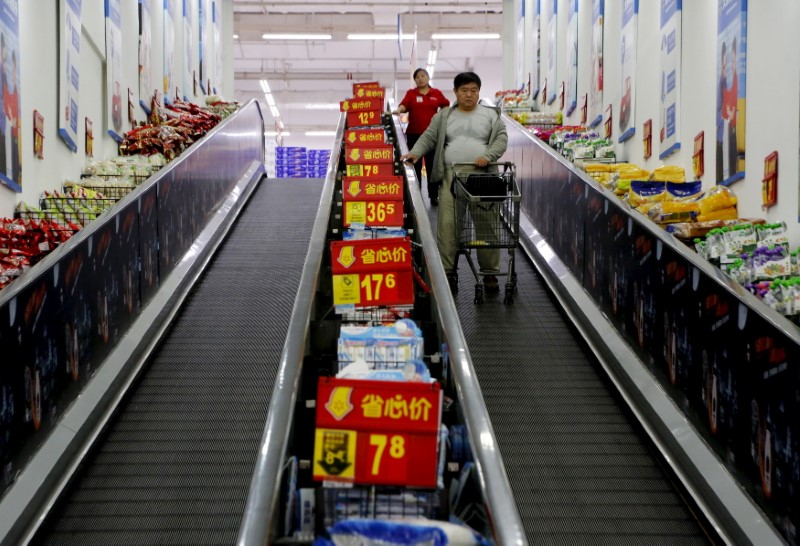(Bloomberg) -- China’s economic activity moderated in April from its record expansion in the first quarter as retail sales missed forecasts.
Industrial output rose 9.8% in April from a year earlier versus the median estimate for a 10% increase. Retail sales expanded 17.7% in the period, far slower than a projected 25% rise. Fixed-asset investment grew 19.9% in the first four months of the year, in line with forecasts. The unemployment rate was lower at 5.1%.
While China’s economy has stabilized at a firmer footing in April, it’s still challenged by the pandemic and an uneven recovery globally as well as a fragile basis for recovery at home, the NBS said in a statement.
The nation’s top leaders recently described the recovery as “unbalanced and unstable,” pledging further efforts to drive a rebound in domestic demand. Sheng Laiyun, a vice head of the National Bureau of Statistics, said earlier this month there’s still a gap between actual and potential growth, suggesting the recovery has still some way to go.
“We did see that retail sales continued to disappoint,” Jian Chang, chief China economist at Barclays (LON:BARC) Plc told Bloomberg TV. That’s consistent with data over the Labor Day public holiday at the beginning of May, which indicated people’s willingness to travel has recovered to pre-Covid levels but actual spending was still lagging, she said.
Manufacturing Investment
China’s stock benchmark CSI 300 Index extended gains to as much as 1.8%, with consumer discretionary and information technology sub-gauges leading the rally.
Industrial production remained robust on the back of a recovery in global demand, with fiscal stimulus and faster vaccine rollouts in many places helping to keep export growth strong. Rising raw material prices was likely a constraint in some areas, as is the push to cut output in sectors like steel and coal to lower pollution.
On a two-year average basis, which corrects for distortions from base effects, manufacturing investment was down 0.4% in the first four months of the year, while infrastructure investment was up 2.4% and property grew 8.4%. Retail sales growth on an average two-year basis softened to 4.3% in April from 6.3% in March, with the consumption of goods and catering services both turning weaker.
A separate report from the NBS suggests the property market remains strong, with home prices rising at the fastest pace in eight months in April.
Authorities have pledged a gradual scaling back of the monetary and fiscal stimulus pumped into the economy last year, with no sharp turn in policy. Recent data shows a notable slowdown in credit in April, suggesting the exit might be materializing at a faster-than-expected pace. The central bank injected medium-term cash into the financial system Monday to match the amount falling due, a move largely expected by analysts.
In March, the People’s Bank of China told banks to curtail loan growth in the coming months and keep it at roughly the same level as last year. The pace of local governments’ debt sales to finance infrastructure projects also slowed sharply in January to April compared to the same period in previous years, according to Bloomberg calculations.
(Updates with comments from NBS, economists.)
©2021 Bloomberg L.P.
